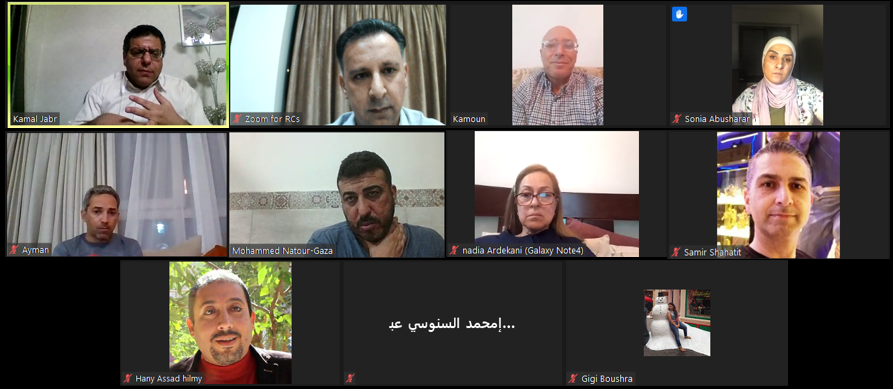URI MENA Cultural Café – weekly Session
On Saturday, 31 Oct. 2020, our 28th session of URI MENA Cultural Café was on “Freedom of Speech/ Expression vs Hate Speech.”
We discussed the meaning of freedom of speech and hate speech from different perspectives, as well as the differences between the two.
Major takeaways:
• Most participants agreed on the notion that “one person’s freedom ends where another’s begins.” Hence, we should not interfere in the affairs or business of other people.
• Freedom of speech/expression should underpin other human rights such as the right to freedom of thought, conscience and religion.
• A participant suggested that it would be better to practice your freedom of speech within your social circle if it hurts others.
• Hate speech can be defined as:
Any form of expression or conduct (written or oral, verbal or nonverbal, e.g. gestures, explicit or implicit) that spreads, incites, promotes or justifies hatred toward a person or a group on the basis of who they are (e.g. their religion, ethnicity, nationality, race, colour, descent, gender or other identity factor).
Anything that attacks people based on what are known as their “protected characteristics”, e.g. race, ethnicity, national origin, religious affiliation, sexual orientation, sex, gender, gender identity, or serious disability or disease.
Hate speech includes all forms of hatred caused by intolerance of the other.
• Governments prohibit hateful, inciteful speech, but many abuse their authority to silence peaceful opposition by limiting and criminalising freedom of expression in the name of counter-terrorism, national security or religion. Governments are also using sophisticated technologies to read activists’ private emails and remotely turn on their computers’ camera or microphone to secretly record their activities.
• Internet promotes hate speech. Studies show that around 300,000 posts are reported as hate speech per month globally.
• As Neo-Nazi, right-wing extremism, nationalism and white supremacy movements are rising, the world needs to address them, especially at the level of UN intervention.
• Combating hate speech does not mean limiting or prohibiting freedom of speech. It means keeping hate speech from escalating into something more dangerous, particularly incitement of discrimination, hostility and violence.
• The International Covenant on Civil and Political Rights (ICCPR), adopted by the United Nations, calls for the respect of the civil and political rights of individuals, including the right to life, freedom of religion, freedom of speech, freedom of assembly, electoral rights and rights to due process and a fair trial. The ICCPR does place an obligation to prohibit hate speech. Article 20 (2) provides that any advocacy of national, racial or religious hatred that constitutes incitement of discrimination, hostility or violence shall be prohibited by law.
